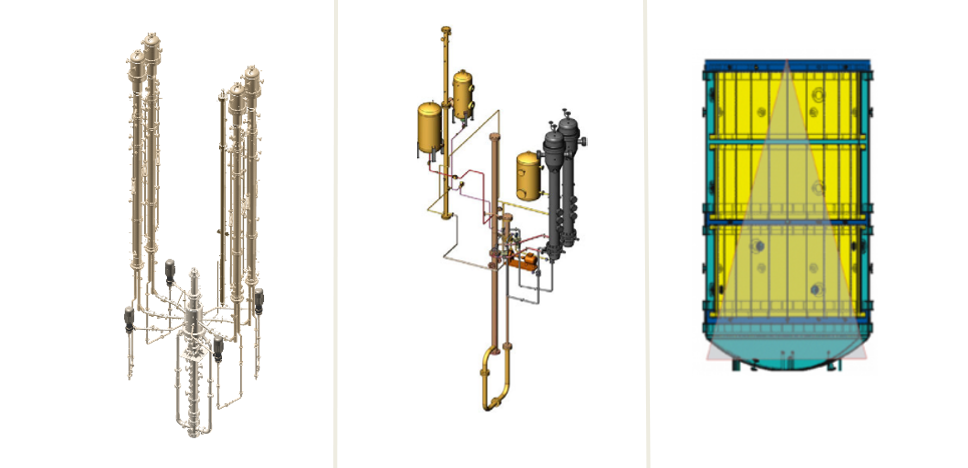NEA SYSTHER joint project facilities: PKL (operated by Framatome), PWR PACTEL (operated by LUT University) and MISTRA (operated by CEA)
The NEA SYSTHER (SYStem THERmal-hydraulics) joint project aims to advance nuclear safety research in thermal-hydraulics. The project kicked off with its first Programme Review Group (PRG) and Management Board (MB) meetings on 15-16 October 2025, bringing together nearly 60 participants from 14 countries and highlighting the global commitment to collaborative nuclear safety research efforts.
SYSTHER brings together Framatome GmbH, LUT University, and CEA as operating agents, leveraging five advanced experimental facilities to address key gaps in thermal-hydraulics research.
For decades, the Primary Coolant Loop (PKL) test facility owned and operated by Framatome GmbH has been central to experimental investigations of pressurised water reactor (PWR) system response under accident conditions, starting with the ISP-10 refill/reflood experiment in 1981. These tests have advanced the understanding of complex thermal-hydraulic processes, improved accident control strategies, and supported the validation and development of system codes.
Meanwhile, LUT University has conducted experimental nuclear safety research since 1975, hosting facilities for PWR simulation and international projects. After PKL’s closure, LUT remains one of the few European laboratories with significant thermal-hydraulic capabilities.
The MISTRA (MItigation and STRAtification) experimental programme, which started in 1998, is part of the CEA’s programme on severe accidents occurring in PWRs or naval nuclear reactors and is focused on containing thermal-hydraulics and hydrogen risk. The MISTRA coupled and separate effect test facility was designed to facilitate simulation, lumped parameter, 3D as well as computational fluid dynamics (CFD), of several topics. The data generated has been extensively used for code validation.
The SYSTHER initiative responds to the recent loss of key infrastructure in Europe, such as the PKL facility, and aims to preserve and enhance technical competence in reactor safety thermal-hydraulics.
The project is structured around four key focus areas:
Parametric studies on thermal-hydraulic phenomena and plant data;
Effectiveness of passive heat removal systems;
Interaction of systems and processes during complex accidental transients; and
Open test options for innovative solutions.
Over the coming months, SYSTHER will conduct a comprehensive series of experiments and analytical activities focused on safety-relevant phenomena in PWRs, boiling water reactors (BWRs), and small modular reactors (SMRs). A strong educational component is also embedded in the project, ensuring knowledge transfer from experienced researchers to the next generation of nuclear safety experts.

